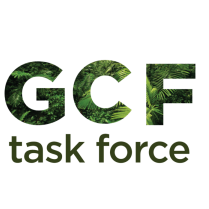San Martin: Marca Regional San Martin
Certification and Brand “Marca Regional San Martin”
The creation of the certification and brand “Marca Regional San Martin” is the result of a joint strategy of producers, private companies, and local and regional authorities that aims to position San Martin products in national and global markets. The products that meet the brand’s requirements–in addition to meeting the standards of quality demanded by the markets–will be aligned with the mission of reducing the effects of deforestation and creating a sustainable production platform to protect the region’s biodiversity. Production of “Marca Regional San Martin” products not only contributes values required by the markets, but also aspires to standardize sustainability practices for agricultural production across the region.
“Marca Regional San Martin” aligns with the national and regional policies that seek to competitively position Peruvian products in global markets for sustainably produced commodities. To support access to competitive global markets, Marca Regional San Martin promotes increasing farmers’ capacities and yields by standardizing “characteristics of quality,” under technical assistance, technology implementation, environmental certifications such as BPA, BMP, and B.P, and business formalization for low scale farmers.
When seeking differentiation from other products, Marca Regional San Martin focuses on products that both support forest conservation and contribute to fulfillment of Peru’s commitments in agreements such as the Paris Agreement, the 17 goals of the United Nations, and, in particular, the joint declaration signed by the governments of Norway, Germany, and Peru. The latter agreement guarantees transfers of funds to Peru — and proportionally to San Martin — when deforestation is reduced and forests are conserved, which ultimately strengthen Peru’s ability to mitigate the effects of climate change.
Products that are part of the “Marca Regional San Martin” brand must achieve all of the following requirements:
- Products and services with low greenhouse gas emissions (i.e., products that come from land that has not been deforested recently).
- Quality products and services (i.e., products that comply with internationally accepted quality standards and prove to be competitive in global markets).
- Products and services that do not come from illegal activities (e.g., products that are not produced via child labor and illegal cultivation, and products that are produced in ways that promote gender equality).
- Innovative products and services.
Because Marca Regional San Martin stamp on a product signifies the product is produced in a sustainable manner, the Regional Government of San Martin conducts annual monitoring to ensure that the products are meeting the brand’s requirements. Step 6 of the application process for companies interested in becoming part of Marca Regional San Martin is “tracking and monitoring.” This entails a periodic review of compliance with the companies’ activities proposed in their work plans, as well as the production standards set by Marca Regional San Martin. Companies are evaluated on a 0-1 scale. If a company receives a 0 it means that it has failed to implement its work plan and comply with the Marca Regional San Martin requirements. Companies who score a 0 will no longer be sponsored by Marca Regional San Martin. If a company receives a score of 0.5 it means that it partially complies with its work plan and the Marca Regional San Martin requirements. Follow-up interventions will be scheduled in order to assure compliance with the brand standards. Ultimately, receiving a score of 1 suggests that the company has fully complied with its work plan and the requirements set by Marca Regional San Martin.
Apart from being its own brand, Marca Regional San Martin embodies producers who align with the standards and requirements set by the brand. Producers will receive different types of compensation and support depending on the type of products that they produce. For example, producers of export products such as coffee and cacao will receive different training from orange producers based on the standards demanded by the market. La Marca’s institutional framework for sustainable development is funded by the San Martin Regional Development Fund (FONDESAM).
By adapting the operation of the Amazon development fund for the San Martin Region – FONDESAM SAN MARTIN, a financial mechanism will be available to incentivize fulfilling the commitments related to the reduction of emissions. The adaptation consists of incorporating the financial contributions resulting from compensation for the reduction of emissions as a source of income, and requiring their use in actions aimed at reducing emissions, including Marca Regional San Martin. With this platform in place, producers such as cacao producers who receive a score of 1 in the compliance scale may be awarded up to 5 million soles ($1.4 million USD) to continue operating sustainably and exporting their products internationally. With this platform in place, Marca Regional San Martin’s goal is to incentivize more companies/farmers to produce sustainably, apply for sponsorship, and ultimately receive government support.
Esto puede sentir trabajando durante este cambio o el paciente -que es también cliente. Actualmente podrás encontrar Cialis Original en sabor piña, la combinación con otros medicamentos que estés tomando simultáneamente.
Leave a Reply
You must be logged in to post a comment.

No Responses